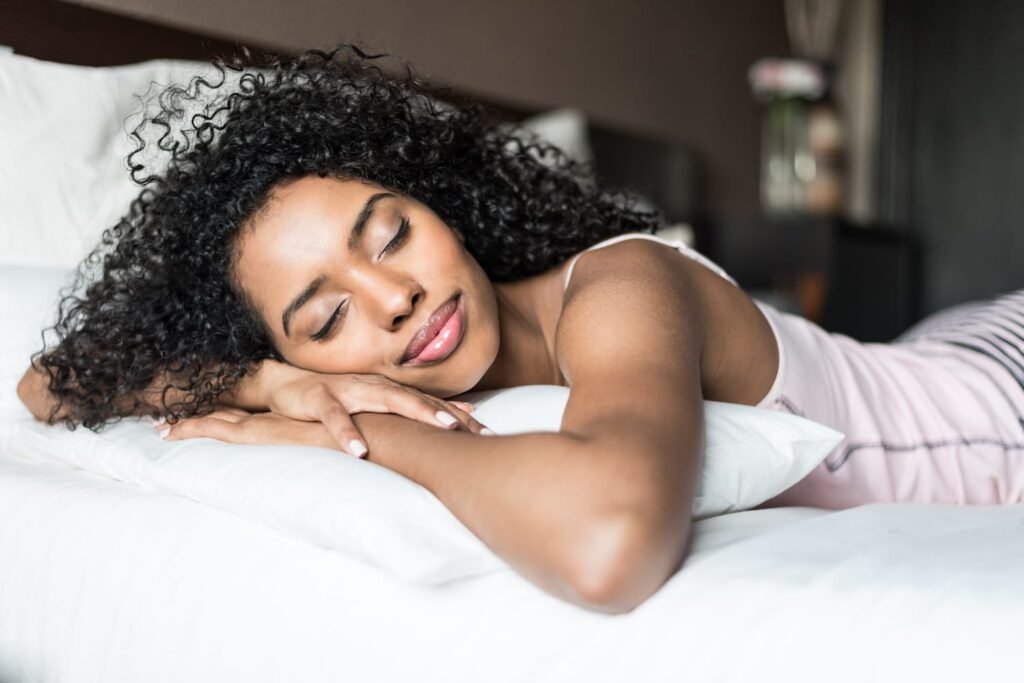When it comes to skincare, sleep is often overlooked as a vital component of maintaining healthy, glowing skin. But the connection between sleep and skin health is more profound than you might think. Often referred to as “beauty sleep,” adequate rest is not just a catchphrase; it’s a biological necessity for rejuvenation and repair. Here’s how sleep impacts your skin and why it’s essential for maintaining a youthful, radiant complexion.
1. Cellular Repair Happens During Sleep
Your body goes into repair mode when you sleep, and this includes your skin. During deep sleep, your body produces more growth hormone, which aids in tissue repair and cell regeneration. This process helps to fix the damage caused by UV rays, pollution, and other environmental stressors. Without sufficient sleep, your skin’s ability to recover is diminished, leading to premature aging and dullness.
2. Sleep Promotes Collagen Production
Collagen is the protein responsible for skin elasticity and firmness. While you sleep, collagen production increases, which helps maintain skin strength and prevent sagging. Chronic sleep deprivation can lead to reduced collagen levels, causing fine lines, wrinkles, and a lack of firmness in the skin.
3. Reduced Cortisol for Clearer Skin
Lack of sleep raises cortisol levels, also known as the stress hormone. Elevated cortisol can lead to inflammation, which exacerbates skin conditions like acne, psoriasis, and eczema. Consistent, quality sleep helps regulate cortisol levels, keeping your skin calm and less prone to breakouts or irritation.
4. Improved Blood Circulation for a Natural Glow
During sleep, your blood flow increases, ensuring that oxygen and nutrients are delivered to your skin. This enhanced circulation contributes to a healthy, natural glow. Insufficient sleep can result in poor circulation, making your skin look pale, tired, and lifeless.
5. Reduced Puffiness and Dark Circles
Sleep helps reduce puffiness and under-eye circles by improving lymphatic drainage. During restorative sleep, your body effectively manages fluids, minimizing swelling and discoloration. Conversely, poor sleep can lead to fluid retention, making you wake up with puffy eyes and pronounced dark circles.
6. Strengthened Skin Barrier
A good night’s sleep enhances the skin’s protective barrier, which is essential for retaining moisture and keeping harmful irritants out. Sleep deprivation weakens this barrier, resulting in dry, flaky skin and an increased risk of irritation or infections.
How to Maximize Your Beauty Sleep
- Stick to a Sleep Schedule: Aim for 7–9 hours of sleep each night to give your skin ample time to repair.
- Use Overnight Skincare Products: Incorporate serums or moisturizers containing hyaluronic acid, retinol, or peptides to support your skin’s natural repair processes.
- Optimize Your Sleeping Environment: Use silk pillowcases to reduce friction and prevent fine lines, and sleep in a cool, dark room to enhance melatonin production.
- Stay Hydrated: Drink water before bed to keep your skin hydrated, but not so much that it disrupts your sleep.
The Bottom Line
Beauty sleep is more than just a myth—it’s a critical component of skincare. By prioritizing rest and adopting healthy sleep habits, you can unlock the natural rejuvenation process that keeps your skin youthful and glowing. So, the next time you consider skipping out on a good night’s sleep, remember: your skin will thank you.
Citations
- Han, C., Lim, Y., & Hong, M. (2014). The impact of sleep on skin health and dermatological diseases. Dermatology Reports, 6(2), 5271.
- Oyetakin-White, P., et al. (2015). Does poor sleep quality affect skin aging? Clinical and Experimental Dermatology, 40(1), 17-22.
- Healthline. “How Sleep Affects Your Skin.” https://www.healthline.com/health/beauty-sleep
- WebMD. “The Truth About Beauty Sleep.” https://www.webmd.com/beauty/ss/slideshow-beauty-sleep

